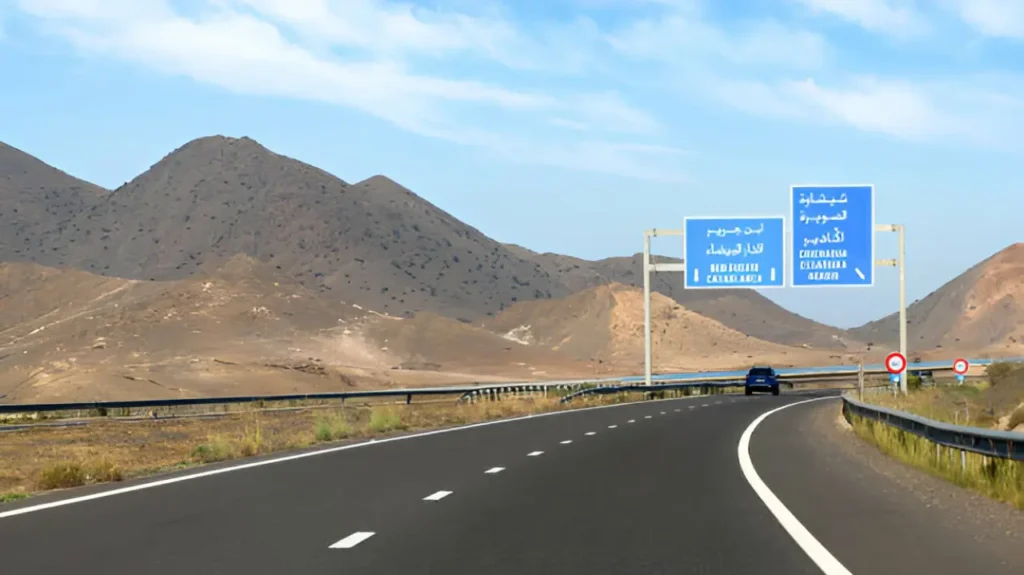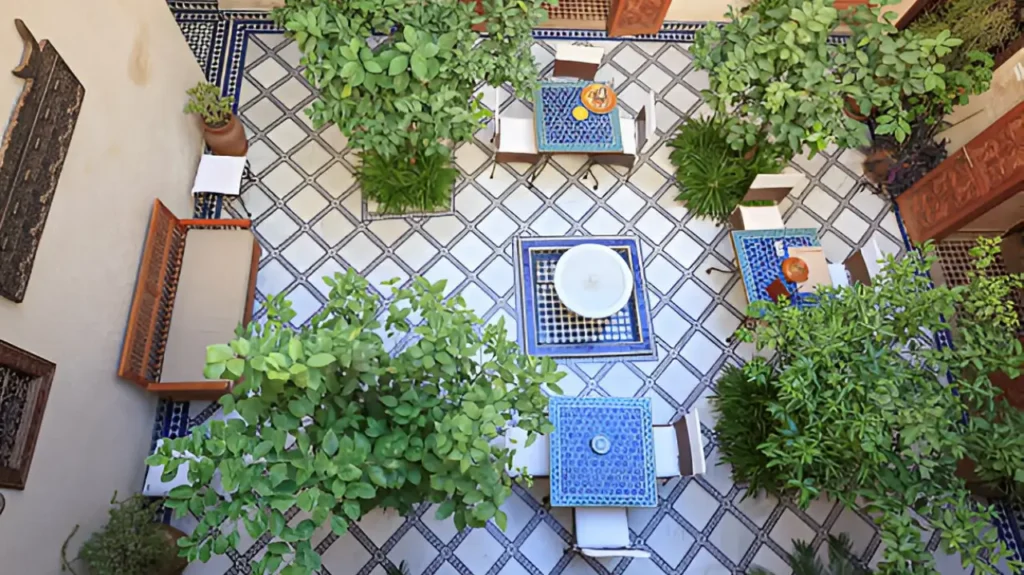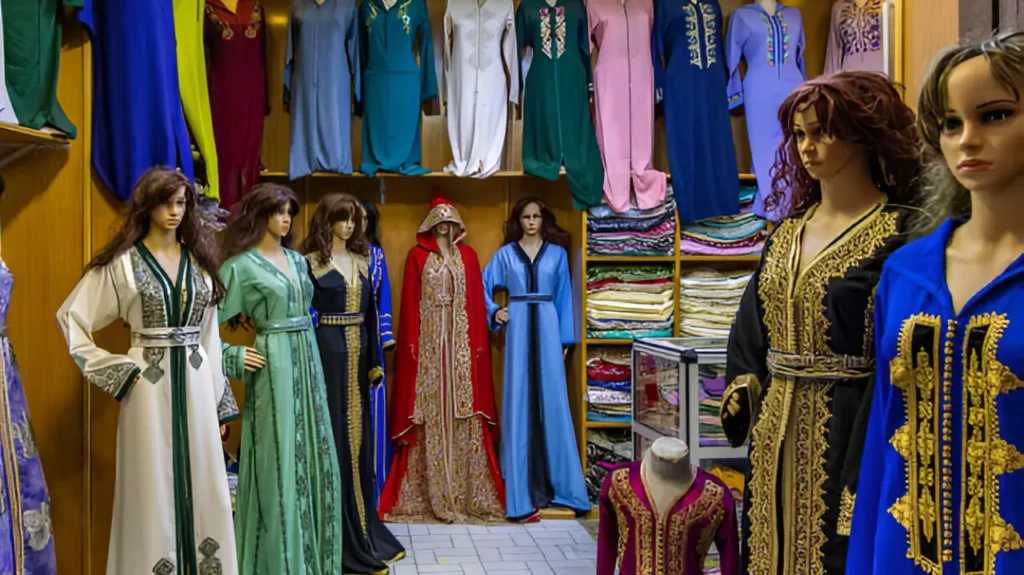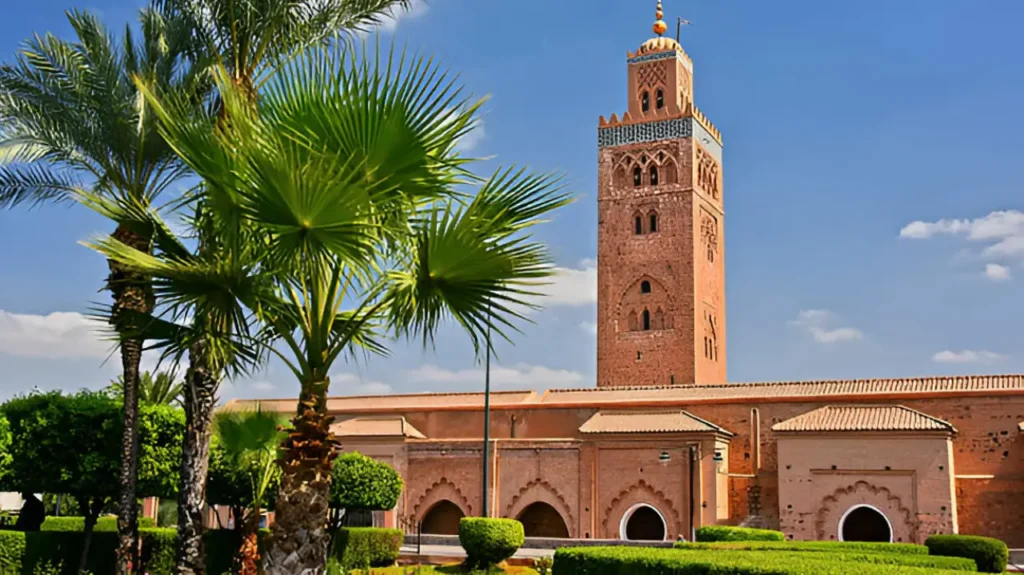Morocco Travel Tips : 10 Essential Things to Know

Table of Contents
Morocco Travel Tips
Morocco is an enchanting country that offers a rich tapestry of experiences, from its vibrant souks and majestic landscapes to its historic cities and cultural traditions. Whether you’re drawn by the allure of the Sahara Desert, the allure of ancient medinas, or the flavors of Moroccan cuisine, there’s much to discover in this North African gem.
However, to fully enjoy your adventure, there are a few things you should know before visiting this amazing country. Here, we have prepared a comprehensive guide with 10 essential tips for visiting Morocco. Make sure to read till the end so you don’t miss out on any of our essential tips.
1. Choose the Right Time to Visit
Selecting the optimal time to visit Morocco can significantly enhance your travel experience. Morocco’s climate varies across its diverse regions, but generally, the best times to explore are during the spring months of April and May and the autumn months of September and October.
During these seasons, the weather is mild and comfortable, making it ideal for sightseeing and outdoor activities without the oppressive heat of summer. Summers, particularly from June to mid-September, can be extremely hot, especially in the inland areas such as Marrakech and Fez, where temperatures can soar above 40°C (104°F). On the other hand, winters are generally mild and pleasant in coastal regions like Casablanca and Essaouira, but if you’re planning to hike in the Atlas Mountains, be prepared for cold temperatures and even snow.
When planning your visit, also consider the timing of major Moroccan festivals and holidays. Ramadan, the Islamic holy month of fasting, is an important time in Morocco.
During this month, many restaurants and shops may have reduced hours, and it’s respectful to be mindful of local customs. Eid al-Fitr, the festival that marks the end of Ramadan, and Eid al-Adha, the festival of sacrifice, are vibrant celebrations that offer a unique glimpse into Moroccan culture.
2. Navigating Morocco

Navigating Morocco is relatively straightforward, even if you’re not keen on driving. The country boasts an impressive transportation network that makes traveling between cities convenient and affordable. For longer distances, Morocco’s train system is highly recommended, particularly the Al Boraq high-speed train that connects major cities like Casablanca, Tangier, and Marrakech.
The trains are comfortable, efficient, and a great way to see the scenic Moroccan countryside. Buses are another reliable option, with companies like CTM and Supratours offering extensive routes that reach even the smaller towns and remote areas. Buses are generally comfortable and provide a cost-effective way to travel.
If you prefer more flexibility, you can consider renting a car, but be aware that driving in Morocco can be challenging, especially in bustling cities like Casablanca and Marrakech, where traffic can be chaotic and road rules are sometimes loosely followed. If you decide to drive, make sure you have a good understanding of local driving customs and always keep an eye out for pedestrians and animals on the road.
Alternatively, taxis are widely available and can be a convenient option for getting around within cities. There are two types of taxis: petite taxis, which are small and only operate within city limits, and grand taxis, which are larger and travel between cities.
3. Staying in a Riad

When it comes to accommodation in Morocco, staying in a riad is an experience not to be missed. Riads are traditional Moroccan houses built around a central courtyard or garden, and many have been beautifully restored and transformed into charming guesthouses. They are an essential part of the Moroccan experience, offering an authentic and intimate atmosphere that larger hotels cannot replicate. Typically located in the heart of old medinas, these accommodations provide a peaceful retreat from the bustling streets outside. With their stunning architecture, intricately decorated interiors, cozy rooms, and personalized service, staying in a riad allows you to immerse yourself in Moroccan culture and hospitality.
Each riad has its own unique charm, often featuring traditional Moroccan design elements such as zellige tilework, ornate plasterwork, and vibrant textiles. Many riads also offer delicious home-cooked meals, often served on a rooftop terrace with views over the medina. When booking a riad, consider its location within the medina, as some can be a bit tricky to find. It’s a good idea to arrange for a pickup or ask for detailed directions to ensure a smooth arrival.
4. Safety in Morocco
Safety is a common concern for travelers considering a trip to Morocco. Overall, Morocco is a safe destination with a relatively low crime rate, especially regarding violent crimes against tourists. However, like in many tourist hotspots, petty crimes such as pickpocketing and scams can occur, particularly in crowded areas like markets and public squares. It’s essential to stay vigilant, keep your valuables secure, and avoid displaying wealth. Use a money belt or a secure bag, and be cautious when using ATMs. It’s also a good idea to make copies of important documents such as your passport and travel insurance.
Remember that Morocco is a Muslim country with Islamic customs and laws, so respecting local traditions is important. Avoid public displays of affection, dress modestly, and be mindful of local customs, especially during religious observances. It’s also advisable to learn a few basic phrases in Arabic or French, as this can go a long way in building rapport with locals and navigating social interactions.
5. Dress Code in Morocco

While Morocco is more liberal than many other Muslim countries, dressing conservatively is still the best approach, especially outside major cities. For women, this generally means covering shoulders and knees. Loose-fitting clothing is not only respectful but also practical in the hot climate. In cities like Marrakech and Casablanca, you may see tourists in more casual attire, but it’s advisable to stick to the local norms, as this shows respect for the culture and can help you avoid unwanted attention.
For men, long pants and shirts are recommended, although in tourist areas, shorts and sleeveless shirts are common. When visiting religious sites, modest attire is required, and women may need to cover their heads. Pack a lightweight scarf that can be used as a head or shoulder cover when necessary. It’s also worth noting that Morocco’s diverse geography means that the weather can vary significantly, so be sure to pack layers if you plan to travel across different regions.
6. Tipping in Morocco
Tipping in Morocco is almost a way of life, so be prepared to tip for nearly every service, whether it’s a bathroom attendant, a waiter, a tour guide, or even a kid who lets you pet his animal. The amount doesn’t have to be large, but it’s a good idea to carry small change with you at all times to avoid awkward situations. Understanding this cultural norm can help you navigate social interactions more smoothly and is a small gesture that can make a big difference to those providing services.
For restaurant service, a tip of around 10% is customary, while for hotel staff, a few dirhams for porters and housekeeping is appreciated. When taking a taxi, rounding up the fare is common practice. If you’re on a guided tour, tipping your guide and driver is customary, with the amount depending on the length and quality of the tour. Remember, tipping is not just about the money; it’s a way to show appreciation for good service and hospitality.
7. Visiting Mosques

If you’re eager to explore Morocco’s beautiful mosques, there’s one important thing to know—most of them are off-limits to non-Muslims. There’s one notable exception: the Hassan II Mosque in Casablanca. It’s one of the largest mosques in the world, and non-Muslims can visit on a guided tour but only at specific times. The mosque’s stunning architecture and breathtaking oceanfront location make it a must-visit, offering insights into Islamic architecture and religious practices.
For all other mosques, you’ll have to settle for admiring the architecture from the outside or peeking in through an open door. When visiting religious sites, it’s important to be respectful and follow any guidelines provided. Dress modestly, remove your shoes if required, and avoid taking photographs unless permitted. Exploring the medinas and cityscapes will also reveal many beautiful mosques, each with its own unique design and history.
8. Embrace Haggling
When shopping in Morocco, be prepared to embrace the art of haggling. The bustling souks and marketplaces are filled with beautiful handicrafts, textiles, and unique treasures, but they aren’t your typical shopping mall experience. Bargaining is part of the culture, and it’s expected that you’ll negotiate the price. Don’t be surprised if the initial price offered by a vendor is significantly inflated. The key to successful haggling is to remain friendly and patient, and to enjoy the process as you find your perfect souvenirs.
Start by offering a price significantly lower than the asking price and be prepared to meet somewhere in the middle. It’s also helpful to have an idea of what similar items cost elsewhere. Remember, haggling is meant to be a fun and interactive experience, so keep the mood light and don’t take it too seriously. Once you agree on a price, it’s considered polite to follow through with the purchase. Exploring the souks is an adventure in itself, with each stall offering a glimpse into Moroccan craftsmanship and artistry.
9. Cash is King
In Morocco, cash is king. While in major urban areas, some high-end establishments might accept credit cards, the vast majority of transactions—especially in local markets, small shops, and some restaurants are cash only. Moroccan dirhams are essential for daily expenses, and it’s important to have enough cash on hand, especially if you’re heading to smaller towns or more rural areas where ATMs may be scarce.
The best way to obtain local currency is by using an ATM, which are widely available in cities and tourist areas. Be mindful of any foreign transaction fees your bank may charge, and notify your bank of your travel plans to avoid any issues with your card. It’s also a good idea to carry a mix of small and large denominations, as change can be hard to come by in some places. When exchanging money, use official exchange bureaus or banks to ensure you get a fair rate.
10. Budgeting Your Trip
Morocco offers a range of experiences for every budget, making it an accessible destination for travelers from all walks of life. For reference, 10 Moroccan dirhams equals about $1. A shared hostel room might cost between 100 to 250 dirhams, offering budget travelers an affordable place to stay. A basic room in a riad for two might cost around 300 to 600 dirhams, providing a more comfortable and culturally immersive experience. For those seeking more independence, a self-catering one-bedroom apartment could set you back about 400 dirhams per night.
Public transportation is quite affordable, with bus or tram tickets costing only 5 dirhams. Taxis are also reasonably priced, especially if you negotiate the fare in advance. Food is another area where you can find great value, with delicious street food and local eateries offering meals at reasonable prices. On average, you might spend about 1,000 dirhams per day for two people, but there are plenty of ways to save money by researching accommodation options online in advance, opting for local meals rather than tourist-oriented restaurants, and taking advantage of free or low-cost attractions.
FAQ
What is the best time to visit Morocco?
The best times to visit Morocco are during the spring months of April and May, and the fall months of September and October, when the weather is mild and pleasant.
Is Morocco safe for tourists?
Yes, Morocco is generally safe for tourists. However, it’s important to stay vigilant and be aware of petty crimes such as pickpocketing and scams, especially in crowded areas.
Do I need to tip in Morocco?
Yes, tipping is a common practice in Morocco for various services. It’s a good idea to carry small change with you at all times to show appreciation for good service.
Can non-Muslims visit Moroccan mosques?
Most Moroccan mosques are off-limits to non-Muslims, except for the Hassan II Mosque in Casablanca, which offers guided tours at specific times.
What currency should I use in Morocco?
The local currency is the Moroccan dirham. It’s advisable to carry cash, as many transactions, especially in smaller shops and markets, are cash only.
By keeping these essential tips in mind, you’ll be well-prepared to embark on a memorable journey through Morocco, experiencing its unique blend of history, culture, and natural beauty. Enjoy your adventure!
